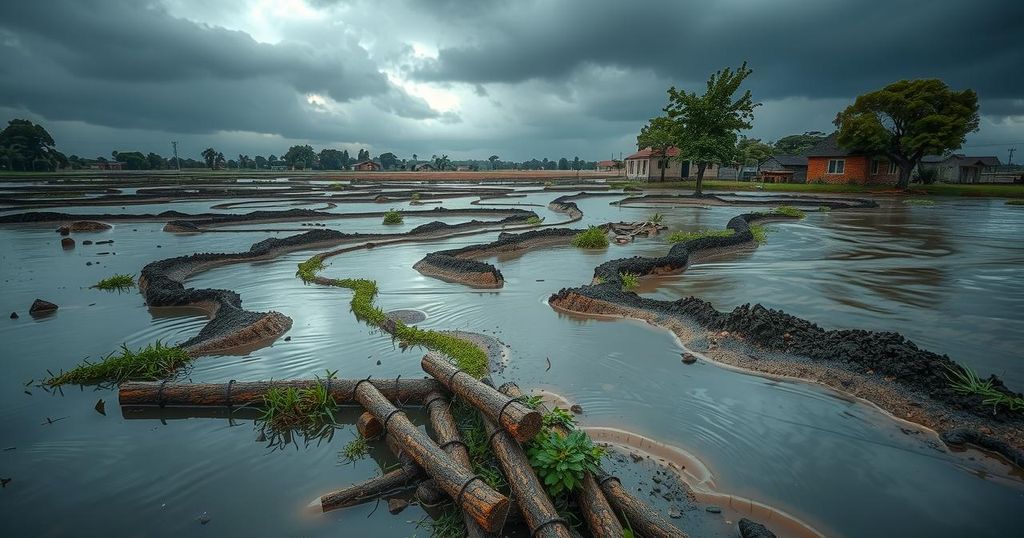The Impact of Climate Change on Flooding in Africa: A Call for Urgent Action

A study by the World Weather Attribution initiative reveals that human-induced climate change has intensified seasonal rains across the Niger and Lake Chad basins, leading to significant flooding in Chad, Cameroon, Niger, Nigeria, and Sudan, which resulted in over 2,000 fatalities and mass displacements. The research indicated that rainfall was five to twenty percent stronger this year, exacerbating an already vulnerable humanitarian crisis. Urgent improvements in water management, early warning systems, and financial assistance from wealthier nations are crucial to prepare for future floods.
A recent study by the World Weather Attribution (WWA) initiative has highlighted the role of human-induced climate change in amplifying the severity of flooding across the Niger and Lake Chad basins this year. The catastrophic floods, which affected countries such as Chad, Cameroon, Niger, Nigeria, and Sudan, have resulted in the tragic loss of over 2,000 lives and have displaced millions. According to researchers, seasonal rainfall this year was recorded to be five to twenty percent more intense, marking a concerning trend attributed to climate change. The growing frequency of extreme rainfall events, now perceived as normal due to climate change, is expected to persist annually unless aggressive measures are taken against global warming. Various socio-economic factors, including impoverishment, rapid urbanization, and poor water management, have further complicated the situation, increasing the vulnerability of affected populations. Moreover, ongoing conflicts in the region contribute to a humanitarian crisis, as millions in Chad, Nigeria, and Sudan are compelled to reside in makeshift shelters, exacerbating their risks during floods. The months of June to September have brought unprecedented flooding, significantly intensifying the already dire humanitarian crises, particularly in Sudan, thereby overwhelming the resources of aid organizations and government authorities tasked with relief efforts. To mitigate the future impacts of climate change, the WWA emphasizes the need for enhancements in water management frameworks, improved early warning systems, and necessary infrastructural upgrades to dams. Additionally, they call for substantial financial contributions from wealthier nations to support these initiatives and a concerted effort at the upcoming United Nations COP29 climate summit in Azerbaijan to diminish reliance on fossil fuels, which are a significant driver of climate change.
The impact of climate change on weather patterns, particularly increased rainfall intensity, has emerged as a critical issue in vulnerable regions such as those surrounding the Niger and Lake Chad basins. The WWA study reveals how these shifts contribute to deadly flooding, resulting in humanitarian crises exacerbated by poverty and conflict. Historically, this region has faced challenges due to environmental conditions; however, the modern implications of climate change have heightened these disasters, causing not only immediate loss of life but also long-term displacement and hardship for millions. Understanding the interplay between climate change and socio-economic vulnerabilities is essential in formulating appropriate responses.
In conclusion, the findings articulated by the World Weather Attribution initiative underscore the urgent need to address climate change as a fundamental factor in the escalating intensity of flooding in Africa. With evident ramifications for human life and societal stability, it is imperative that both national governments and international bodies take decisive actions to enhance preparedness and resilience against such extreme weather events. Additionally, the call for developed nations to provide financial support highlights the need for collective action in tackling the global implications of climate change.
Original Source: www.africanews.com






